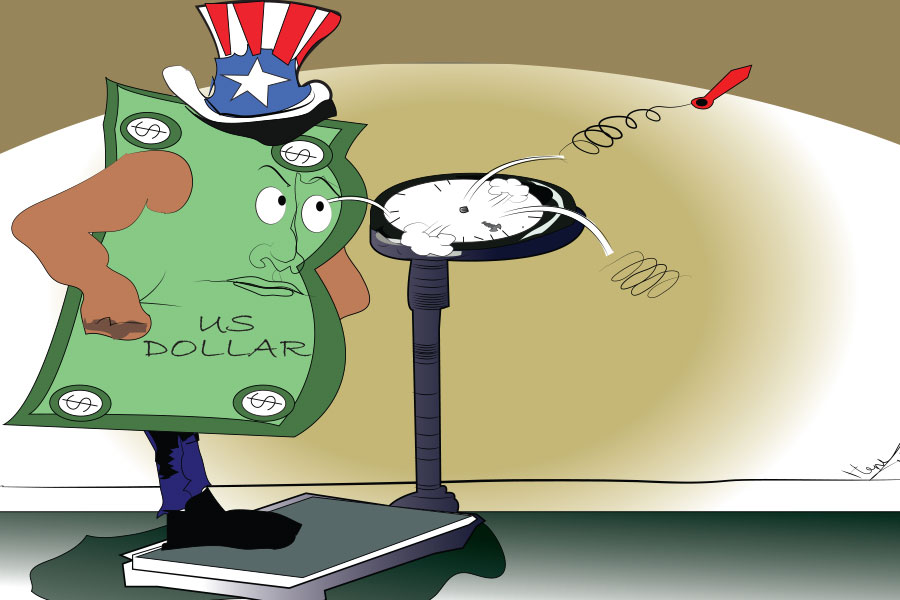
Radar | Sep 14,2019
May 11 , 2019
By FASIKA TADESSE ( FORTUNE STAFF WRITER )
A Turkish company is importing steam coal to supply cement factories for an estimated 60 million dollars.
HC Trading Plc, a company founded in 1996 to conduct the trading activities of Heidelberg Cement Group companies worldwide, has so far delivered 200,000tn of coal, shipping 50,000tn a month since the beginning of this year.
Contracted by the Ethiopian Petroleum Supply Enterprise (EPSE), the company was awarded to supply 650,000tn of the 850,000tn of coal that will be consumed by cement factories in 2019.
HC Trading won the right to supply the coal after vying with Riftcot, a company based in Kenya and known for supplying coal, bitumen electricity generation and off-grid lighting items in East Africa. Last year, Riftcot and HC Trading supplied 100,000tn and 600,000tn of coal, respectively.
HC Trading secured the latest deal by offering the lowest profit margin or the "least premium" above the price of coal on the global market.
As of May 10, 2019, the price of June futures contract for a tonne of thermal coal loaded at Richards Bay in South Africa was 73 dollars, according to the Intercontinental Exchange, one of the world's largest commodity exchanges.
Before the Enterprise announced the tender, it tabulated the expected demand from the cement factories between to be 650,000tn - 850,000tn, according to Abayneh Awol, manager of the petroleum supply & sales department at the Enterprise.
"The company will supply the coal between these figures depending on the demand of the companies," Abayneh told Fortune.
Cement manufacturers and steel and metal companies heavily depend on carbon-intensive fuels such as coal. To meet the demand of these companies, the Enterprise has been procuring coal and selling it to them since 2013.
The 20 operational cement factories, which have a production capacity of 18 million tonnes of cement a year, require 3,900tn of coal a day to operate in their full capacity.
Habesha Cement, which was inaugurated in 2017 and has a capacity of producing 1.4 million tonnes of cement a year, is one of the beneficiaries. It has a daily demand of 390tn of coal.
The company is procuring the coal from the Enterprise, since the local supply could not meet its demand, according to Mesfin Abi, chief executive officer of Habesha Cement.
“The supply inconstancy and the poor quality of the coal have made us depend on imported coal,” he told Fortune.
Ethiopia, which started coal exploration in the 1940s, has 600 million tonnes of coal resource situated at different sites.
Gojeb, Chinda, Kindo, Halul and Wake in the Southern Nation, Nationalities, Peoples' and Wuchale in the Amhara, and Arjo, Nejo and Mendi in the Oromia regional states are areas known for coal deposits, according to the Geological Survey of Ethiopia.
While most of the cement makers use the coal imported by the Enterprise, Derba Midroc Cement, a company under the umbrella of MIDROC Group, consumes coal imported by National Oil Company (NOC), another company under MIDROC.
Andualem Mekonnen (PhD), an environment pollution and sanitation expert, believes that the country is forced to consume this harmful fuel as it does not have diversified energy sources.
"Coal has harmful effects on humans and the environment because of the carbon oxides and small particulates emitted after it is burned," he said.
Since the country does not have the luxury of picking and choosing which energy source to use, it uses the option it gets, according to Andualem.
“But what worries me is how long the country will be using coal, while it has other renewable and environmentally friendly energy sources,” Andualem said.
However, for the past couple of years, the cement companies are consuming half of their demand as they are not operating at full capacity.
Due to the slow economic situation in the country, most of the cement factories including Habesha Cement are producing below their capacity, according to Mesfin Abi.
The management of HC Trading Plc did not respond to the email inquiry from Fortunebefore the paper was sent to print.
PUBLISHED ON
May 11,2019 [ VOL
20 , NO
993]

Radar | Sep 14,2019

Radar | Nov 30,2019

Editorial | Feb 16,2019

Commentaries | Jul 20,2019

Radar | Feb 09,2019

Viewpoints | Apr 02,2022

Radar | May 18,2019

My Opinion | Aug 16,2020

Radar | Jun 08,2019

Radar | Mar 13,2021

Dec 22 , 2024 . By TIZITA SHEWAFERAW
Charged with transforming colossal state-owned enterprises into modern and competitiv...

Aug 18 , 2024 . By AKSAH ITALO
Although predictable Yonas Zerihun's job in the ride-hailing service is not immune to...

Jul 28 , 2024 . By TIZITA SHEWAFERAW
Unhabitual, perhaps too many, Samuel Gebreyohannes, 38, used to occasionally enjoy a couple of beers at breakfast. However, he recently swit...

Jul 13 , 2024 . By AKSAH ITALO
Investors who rely on tractors, trucks, and field vehicles for commuting, transporting commodities, and f...

Jul 5 , 2025
Six years ago, Ethiopia was the darling of international liberal commentators. A year...

Jun 28 , 2025
Meseret Damtie, the assertive auditor general, has never been shy about naming names...

Jun 21 , 2025
A well-worn adage says, “Budget is not destiny, but it is direction.” Examining t...

Jun 14 , 2025
Yet again, the Horn of Africa is bracing for trouble. A region already frayed by wars...